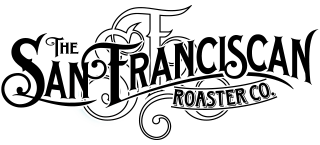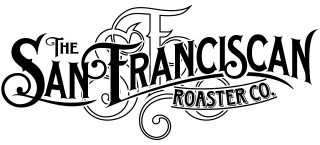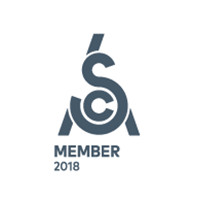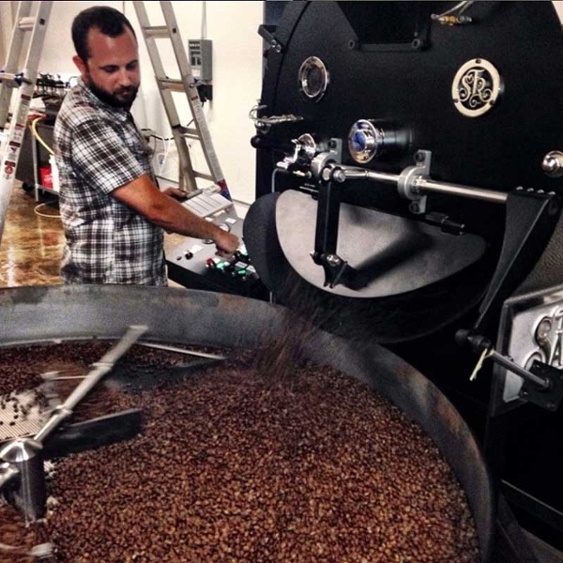
The specialty coffee industry is unique; a significant aspect of its core mission is in trying to improve the lives of everyone that forms a part of it. It’s why the industry is composed of a culture with underlying ethical, environmental, and aesthetic principles that elevates it beyond mere economic transactions. The San Franciscan Roaster is at the heart of the complex coffee journey; it’s the mechanism that brings to life and— in a very literal way— connects the farmer’s labor and integrity (coffee bean) with the roast master’s skill and craft (the roast). For a long time, the industry has cultivated a passion for quality, sustainability, and fairness. This manifests in the form of different sales practices like Fair Trade, Direct Trade, and other industry standards that represent coffee’s all-encompassing concern for bigger and better things.
As manufacturers of the best American-made coffee roasters, the state of the industry as a whole is important to us. We are constantly in contact with various players in the coffee industry: from coffee shop owners that purchase our roaster, to the roast masters themselves, to those involved in the direct trade of the beans and those building relationships with farmers overseas. Specialty coffee has grown into a worldwide cultural phenomenon, united by an appreciation and devotion for the journey that coffee undergoes in order to reach your taste buds.
A Glimpse of the Economic Importance of Coffee
The coffee industry, according to some estimates, is worth more than 100 billion dollars worldwide. In 2010, the U.S coffee industry was worth about 40 billion; the specialty coffee industry was about one-third of that, roughly 30%. In only seven years, this number increased. In 2017, 59% of all the coffee consumed was specialty coffee, versus 41% non-specialty. Over the last eighteen years, the specialty market has seen a steady increase.
This indicates that more local coffee houses roasting specialty coffees have sprouted up across the nation and throughout the world. In fact, this has been happening since the 1970s, when third wave coffee started breaking through the mainstream and replacing the bland mass-produced coffee on local supermarket shelves. More importantly, however, the growth of specialty coffee is more than just an economic development; it indicates a profound and fundamental shift in the way people think about coffee.
The folks involved in the industry and those consuming specialty coffee, recognize that the cup is a representation of an arduous and labor-intensive journey. The consumption of coffee, thus, has changed and adopted a more profound quality. Specialty coffee drinkers wonder where the seeds come from, how they were harvested, how the beans were roasted, and who the roaster was. And suddenly, daily coffee lovers are engaged in more than just purchasing a commodity.
The San Franciscan Roaster company has seen the rise of coffee first hand. We have seen distributors of our roasters sprout up in regions like Asia, Middle East, and South/Central America. This means people everywhere are excited about the craft of coffee and the creation of it as an expression of human labor and creativity.
Coffee Sourcing Models: Fair Trade and Direct Trade
As coffee lovers, we know that most of the coffee consumption happens in the world’s industrialized nations, and the growing and harvesting often occurs in less-developed nations. As coffee drinkers have become more conscientious about who was growing their coffee, the attempt to ensure the protection of workers and the environment where coffee is grown led to the formation of Fair Trade International, a non-profit organization aimed at leveling disparities between small farmers and large industrialized ones.
Fair Trade
The Fair Trade label on many coffee brands indicates that the farms that produced that coffee comply with certain highly-regulated standards but does not provide roasters with direct access to the growers and farmers cultivating their coffee. The Fair Trade label has come under some scrutiny, as it doesn’t measure or guarantee the quality of coffee, consistency, or full sustainability. This model also doesn’t ensure that you can trace specifically where each coffee was grown. Nevertheless, it remains an important and well-recognized brand and a shift in the thinking of coffee as a simple commodity.
The Direct Trade Model
The term ‘direct trade’ has become widely used in the specialty coffee industry in recent years. Generally speaking, it refers to a roaster or coffee company that travels overseas to the country of origin and cultivates relationships with the coffee farmers themselves. This changes the dynamic into a more synergistic relationship and strengthens the connections in the supply chain.
Direct trade is not regulated and does not have one set of defined criteria or principles. It does not have a central agency that dictates from afar. Instead, it is a personal initiative and mission by members of the specialty coffee community to improve the quality of their coffee while ensuring sustainable and ethical business practices are occurring at the source. Different coffee companies that have taken it upon themselves to establish these relationships approach it in their own way. The idea is to create a mutually beneficial and collaborative business partnership between coffee farmers and coffee roasters, which in turn ensured quality, value, and consistency of the coffee being produced.
Any coffee craftsman or roaster will tell you that consistency is a crucial characteristic when trying to achieve and experiment with certain roast profiles. The quality and color of the bean are important, as it determines the pre-roast moisture content and inherent taste characteristics like acidity.
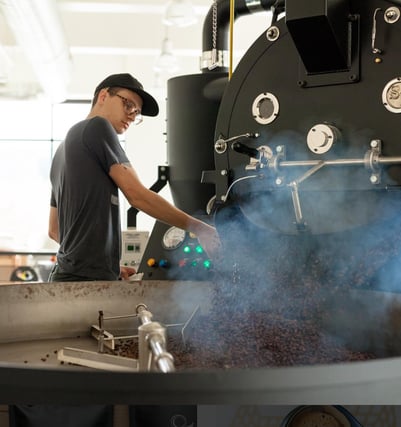
Why It Matters
While it is difficult for many roasters to establish Direct Trade relationships due to cost, the continuation of this type of collaborative model only encourages a more conscious approach to coffee across the board. Fair Trade and Direct Trade is just another part of the specialty coffee industry that sets it apart. The entire journey matters. Farming and growing is the foundation. Direct Trade is a different approach and it has informed the general philosophy and attitude of coffee aficionados everywhere. San Franciscan Roasters is proud to participate in an industry whose integral philosophy is concerned with quality, ethical and effective labor practices, and environmental considerations.
The San Franciscan Roaster at the Heart of the Journey
The San Franciscan Roaster is more than just the most effectively engineered coffee roaster in the business; we are also part of the bigger movement that is the specialty coffee industry. We celebrate the labor, the individuality, and the craft every step of the way. Our machines are our contribution to the incredible expansive effort to improve the world through coffee— a heightened consciousness, one cup of coffee at a time. We are passionate about working in an industry that encourages people to think differently about the products they consume and appreciate the origins, the process, the people behind it, and, as always, the delicious results.
